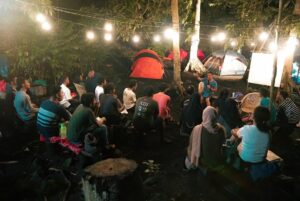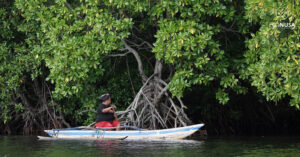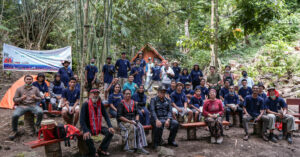Let’s see if you can come up with a list of Maluku’s endemic animals! Maluku is an Indonesian province with a diverse range of flora and fauna. This time, let’s learn more about these four Maluku endemic animals!
1. Halmahera Walking Shark
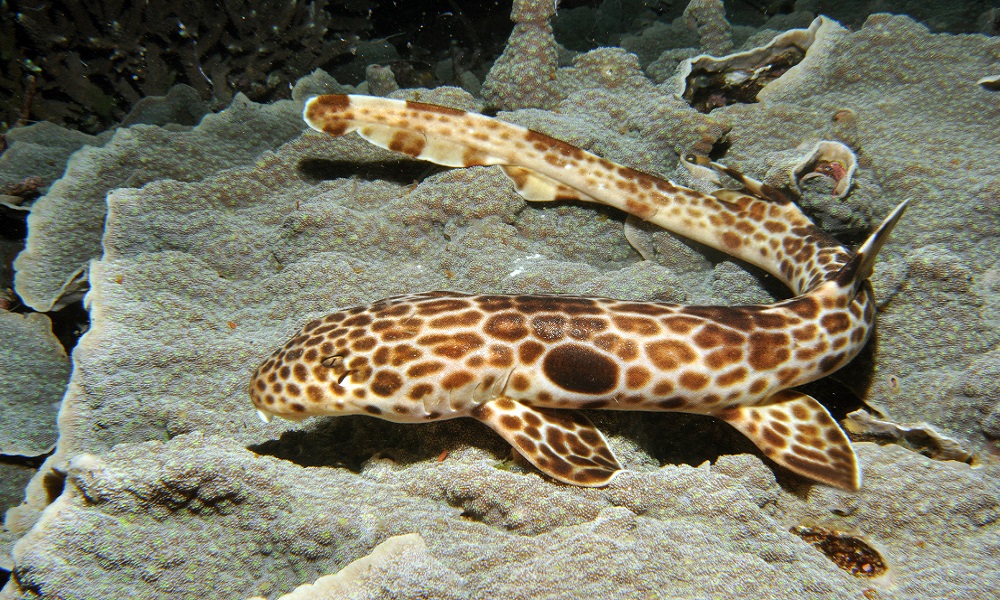
Is it true that there is a shark who can walk? Yup, walking sharks get their name from the fact that as these sharks swim in the sea, they use four fins on both sides of their bodies to make it appear as if they are walking. Walking sharks come in nine different species, five of which are known to live in Indonesian waters. Interestingly, one walking shark species can only be found in the waters of North Maluku, namely the seas of Loleo (Central Halmahera), Tidore Island, Maitara, Lelei (South Halmahera), and Mare. Hence, this species is known as the Halmahera walking shark (Hemiscyllium halmahera).
The Halmahera walking shark has a relatively small body size, with a length range of up to 70 cm and their body color is brown with unique patterns. In early December 2020, the International Agency for nature conservation (IUCN) changed the status of the Halmahera Walking Shark from ‘not evaluated’ to ‘near threatened’.
2. Blue-eyed cuscus
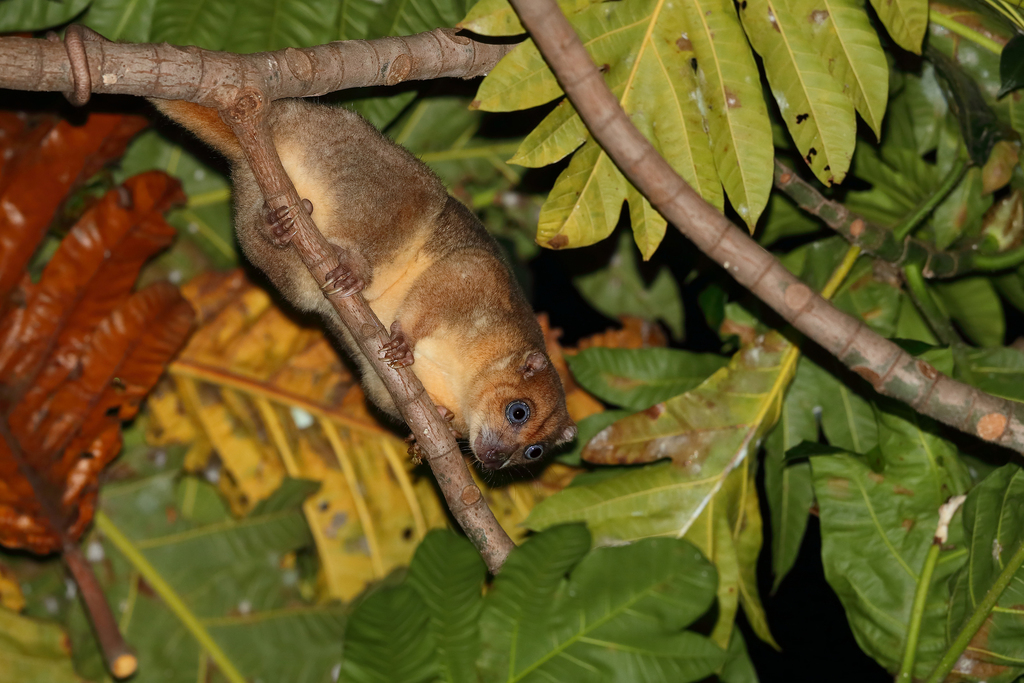
In North Maluku, there is another unique and rare fauna, namely the blue-eyed cuscus (phalanger matabiru). This animal is also called as kuso in the native language. The blue-eyed cuscus is an endemic species found only on the islands of Ternate and Tidore. The uniqueness of this one marsupial animal is its two blue eyeballs, as their name implies. They are also animals that are nocturnal and like to live alone or in a solitary environment. Unfortunately, the blue-eyed cuscus population is currently declining and the status has been designated as ‘vulnerable.
3. Halmahera angel bird
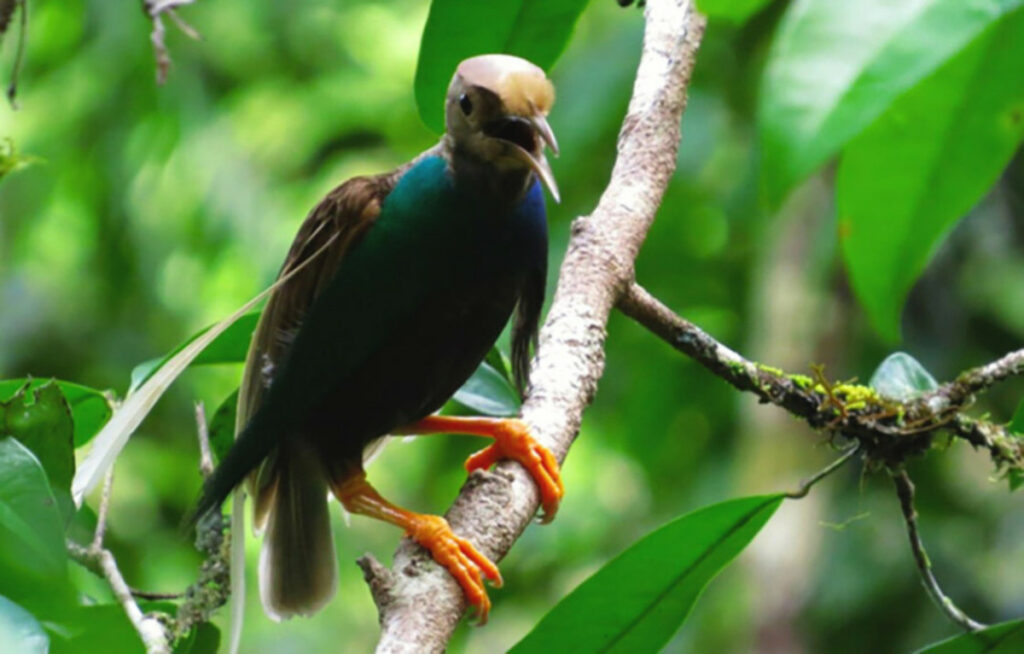
The bird of paradise is well-known as a type of bird coming from Papua. But, it turns out that there is also a type of bird of paradise that is endemic from Maluku! Yep, the Halmahera angel bird (Semioptera wallacii) is a unique species found solely on Halmahera and Bacan Islands in North Maluku. The Halmahera angel bird, like all other birds of paradise, is famous for its beauty. This bird is characterized by two pairs of long white feathers that bend outwards from its wings. Another interesting feature is that male Halmahera angel birds have a habit of dancing in front of females in the morning or evening to capture their attention.
4. Psychedelic frogfish
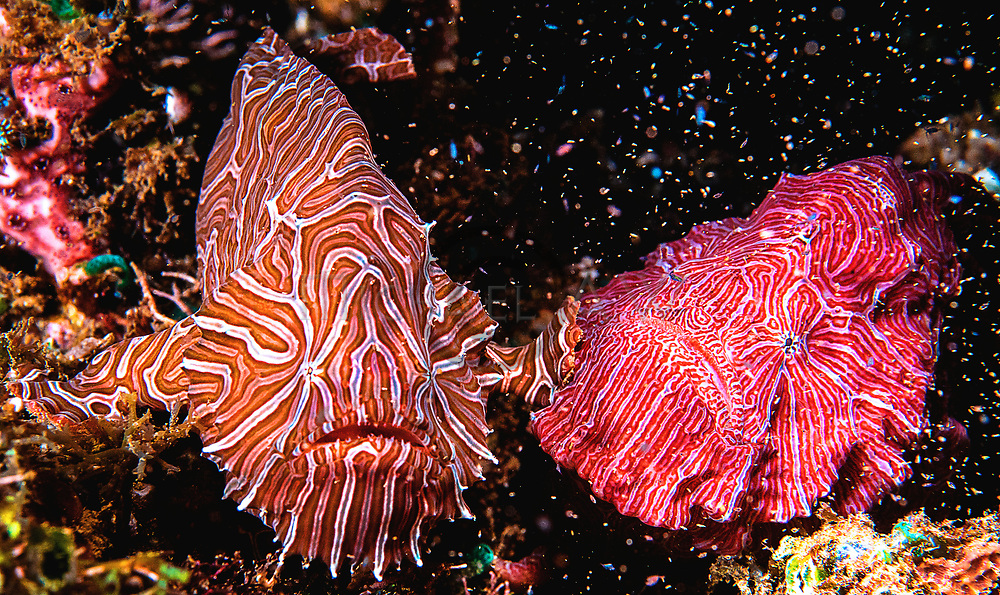
In the ocean, Maluku is home to a number of marine species that are unique to the region. The psychedelic frogfish (Histiophryne psychedelica) is one of them, and it resides in coral reefs around Ambon Island. It was initially discovered in 2009 by Ted Pietsch, Arnold, and Hall. The little frogfish is around 10 cm long and has a beautiful pink palm design with stripes. This marine species has become one of the icons of Ambon’s tourist attractions due to its uniqueness. However, the coral reefs in which they live are becoming increasingly degraded. If the pollution does not stop, their survival will be endangered even more.
There are many other animals endemic to Maluku that are interesting to learn about and study, in addition to these four. Of course, there is still a lot of biodiversity to be discovered not only in Maluku, but also on other Indonesian islands. As a mega biodiversity country, Indonesian researchers play a significant role in this regard. Our country currently requires a large number of researchers to investigate the vast array of flora and wildlife that exist. Who else will research it if we, as Indonesians, do not?
You can apply to the EcoNusa Foundation’s Young Papuan Scientist program if you want to be a young researcher who discovers biodiversity in Indonesia. This program allows you to attend workshops and bootcamps in preparation for research, receive professional supervision while conducting research, and publish research findings. Isn’t it exciting?



